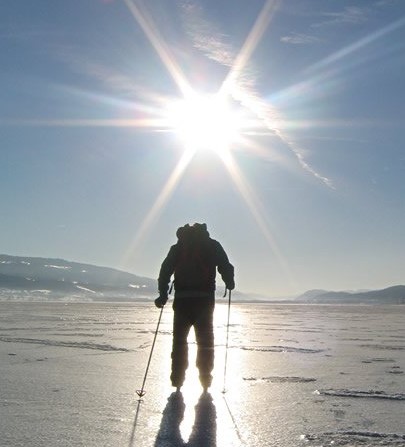
In January 1990, I traveled to the Soviet Union with several of my colleagues to deliver Jewish ritual items and teach Torah to Jews thirsting for knowledge.
In Moscow, Leningrad, and Kiev we witnessed firsthand how difficult Jewish life was because religious freedom was still restricted.
While visiting Leningrad, we made a detour to see the Baltic sea which was frozen over. As we “walked on water,” I marveled at how so much salt water could turn into ice.
I recalled this incident as I reviewed this week’s Torah portion of Korach (Numbers 16:1–18:32).
Korach is remembered for challenging the authority of Moses and causing others to join him. How was it possible for someone to dampen the awe and enthusiasm the Jews had for Moses?
An answer is found in Korach’s name because the same Hebrew letters (קרח) also spell the word for “kerach” which means ice.
To challenge Moses’ leadership, Korach had to “cool down “the Jewish people by drawing attention to what he considered an unfair hierarchy. In the end, Korach’s rebellion failed, and it became clear that every individual plays a unique and valuable role in the community of Israel.
Millennium later, on a cold winter day, the holy Baal Shem Tov, founder of the Chassidic movement, traveled into the forest with his students. They came to a frozen lake and noticed two Russian peasants carving a cross into the ice to go fishing.
His students wondered what they should learn from witnessing a cross carved into ice.
The Baal Shem Tov explained that Torah is compared to water, which flows from a high place to a low place and gives life. However, if the Torah inside us is cold and indifferent, it can turn to ice, and all kinds of false theologies can be carved into it.
This happened in the time of Korach, in the time of the Baal Shem Tov, and is still happening today.
The solution is to warm up our Torah by practicing it with enthusiasm and imbuing it with spirituality, which heightens sensitivity to God.
May this Shabbos provide an experience of tapping into the spiritual source of Judaism and opportunities to share this experience with others.
Shabbat Shalom and Happy Fourth of July,
Rabbi Bentzion Kravitz